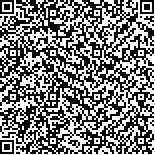| Quote
: |
关媛媛,郝阳,王泓午,田春颖,孙璇,王东军,田之魁.基于数据挖掘的新型冠状病毒肺炎地域性中医预防方用药规律探析[J].湖南中医药大学学报英文版,2020,40(12):1508-1514.[Click to copy
] |
|
| |
|
|
| This paper
:Browser 4118times Download 2213times |
| 基于数据挖掘的新型冠状病毒肺炎地域性中医预防方用药规律探析 |
| 关媛媛,郝阳,王泓午,田春颖,孙璇,王东军,田之魁 |
| (天津中医药大学研究生院, 天津 301617;天津市第一中心医院中医科, 天津 300270;天津中医药大学健康科学与工程学院, 天津 301617) |
| 摘要: |
| 目的 运用数据挖掘方法分析全国不同地域制定预防新型冠状病毒肺炎中医药的用药规律,为新型冠状病毒肺炎中医预防方的制定、合理组方提供依据。方法 检索国家、各省、自治区、直辖市卫健委官网发布的中医药防治诊疗方案及我国各地区、中医药管理局中医药对新型冠状病毒性肺炎干预方案中涉及中药预防方,检索时间从2020年1月至2020年6月。对数据进行描述统计及关联规则分析。结果 全国中医药预防方案中均使用了黄芪、金银花、防风、白术,在药物性味方面以甘、温药物居多,药物归经以肺、脾、胃经多见。各省市、自治区制定具有地域特色的新型冠状病毒性肺炎中医药预防方药,华北地区用药藿香、桔梗、防风,性味偏苦、辛,共奏解表化痰、祛风胜湿之功;华东地区用药紫苏叶、太子参、陈皮,性味偏甘、辛,益气散寒、健脾燥湿;华中地区用药前胡、生薏苡仁,性味甘、辛,注重固护脾经;华南地区用药连翘、葛根,性味甘、辛,清热生津、解毒退热;西南地区用药防风、藿香、芦根,性味甘、温、寒,清热解表、散寒除湿;西北地区用药羌活、防风,性味甘、温,祛风散寒,胜湿止痛;东北地区用药丹参、陈皮,性味苦、辛,理气燥湿、活血止痛。结论 根据地域性制定中医药预防方预防新型冠状病毒肺炎在我国各省市得到有效推广,结合地域性用药特征为临床上预防新冠肺炎提供一定的指导作用。 |
| 关键词: 新型冠状病毒肺炎 中医预防方 地域性 用药规律 数据挖掘 |
| DOI:10.3969/j.issn.1674-070X.2020.12.014 |
| Received:July 05, 2020 |
| 基金项目:国家科技部“973”项目(2011CB505406);天津市教委“十三五”创新团队建设(TD13-5049)。 |
|
| Exploration and Analysis of Medication Rules of Regional TCM Preventive Prescriptions in COVID-19 Based on Data Mining |
| GUAN Yuanyuan,HAO Yang,WANG Hongwu,TIAN Chunying,SUN Xuan,WANG Dongjun,TIAN Zhikui |
| (Graduate School of Tianjin University of Traditional Chinese Medicine, Tianjin 301617, China;Department of Traditional Chinese Medicine, Tianjin First Central Hospital, Tianjin 300270, China;School of Health Science and Engineering, Tianjin University of Traditional Chinese Medicine, Tianjin 301617, China) |
| Abstract: |
| Objective To analyze medication rules of TCM preventive prescriptions for COVID-19 in different regions of China by applying data mining, and to provide a basis for formulation and rational composition of TCM preventive prescriptions for COVID-19. Methods TCM diagnosis and treatment protocols of prevention and treatment published on official websites of health commissions of the state, provinces, autonomous regions and municipalities directly under the central government, as well as TCM preventive prescriptions in TCM intervention protocols for COVID-19 released by TCM administrations within China were searched from January 2020 to June 2020. The data were performed descriptive statistics and association rules analysis. Results Radix Astragali seu Hedysari, Flos Lonicerae, Radix Saposhnikoviae and Rhizoma Atractylodis Macrocephalae were used in all the TCM prevention protocols in China. Sweet and warm medicinal substances are the majority in the aspect of medicinal properties and flavors, and channels of lung, spleen and stomach were commonly seen in channel tropism. Provinces, cities and autonomous regions had formulated TCM preventive prescriptions for COVID-19, with regional characteristics. In North China, Herba Pogostemonis, Radix Platycodonis and Radix Saposhnikoviae were used, which were bitter and acrid in flavor, and played a role of relieving superficies and resolving phlegm, as well as expelling wind and eliminating dampness. Folium Perillae, Radix Pseudostellariae and Pericarpium Citri Reticulatae are used in East China, which were sweet and acrid in flavor, and they can replenish Qi and disperse cold as well as invigorate spleen and eliminate dampness. Radix Peucedani and Semen Coicis were used in Central China, which were sweet and acrid in flavor and paid attention to consolidating and protecting the spleen channel. In South China, Fructus Forsythiae and Radix Puerariae were used, which were sweet and acrid in flavor, and they can clear heat and promote fluid production as well as remove toxicity and reduce fever. Radix Saposhnikoviae, Herba Pogostemonis and Rhizoma Phragmitis were used in the Southwest, which were sweet in flavor and warm or cold in property, and they can clear heat and relieve superficies as well as dispel cold and eliminate dampness. Rhizoma et Radix Notopterygii and Radix Saposhnikoviae were used in the Northwest China, which were sweet in flavor and warm in property, and they can dispel pathogenic wind and dispel cold as well as eliminate dampness and relieve pain. In the Northeast China, Radix Salviae Miltiorrhizae and Pericarpium Citri Reticulatae were used, which were bitter and acrid in flavor, and they can regulate Qi and eliminate dampness as well as promote blood circulation and relieve pain. Conclusion The TCM preventive prescriptions for preventing COVID-19 have been effectively promoted in various provinces and cities in China according to regions. The medication rules based on regional characteristics provide certain guidance for clinically preventing COVID-19. |
| Key words: COVID-19 TCM preventive prescriptions regional medication rule data mining |
|

二维码(扫一下试试看!) |
|
|
|
|


